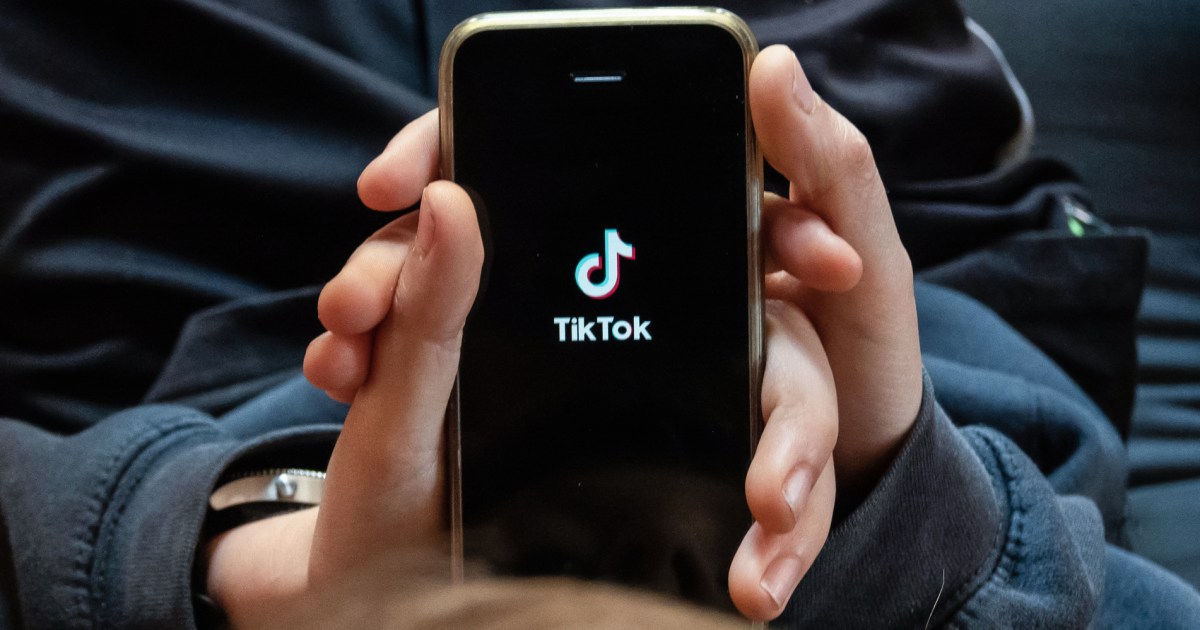By Scott Wong, Kyle Stewart and Rebecca Kaplan —
NBC News
The House of Representatives is about to approve a bill this Wednesday that could ban TikTok in the United States, while Republicans and Democrats warn that the popular video application is a threat to national security.
TikTok, owned by Chinese company ByteDance, is aggressively lobbying to kill the legislation, arguing it would violate the First Amendment speech rights of its
170 million American users
and harm thousands of small businesses that depend on it. .
“It will destroy small businesses like us – this is our livelihood.
We have created success,” Paul Tran, who owns a skin care company called Love and Pebble, complained Tuesday during a pro-TikTok rally outside the Capitol.
TikTok has about 170 million American users.Dan Kitwood/Getty Images
Tran said that his business was on the verge of closing last year until TikTok Shop arrived and “totally boosted our business.”
Now 90% of his customers come from the app, he said.
“If they pass this bill,” Tran said, “they will be destroying the American dream that we truly believe in.”
What the bill really seeks
Despite pressure on Congress, the bipartisan bill is expected to be approved by the Lower House and sent to the Senate, where lawmakers indicated they are still evaluating it.
The president, Joe Biden, has said that if the bill reaches his table, he will sign it to turn it into law.
Proponents of the bill say it is incorrect to say the bill seeks an outright ban.
Dubbed the Protect Americans from Apps Controlled by Foreign Adversaries Act, the legislation would create a process for the president — through the FBI and intelligence agencies — to designate certain social media apps under the control of countries such as China, Russia, Iran and North Korea, as threats to national security.
[Trump no longer wants to ban TikTok (but not because he now considers it safe)]
Once an app is deemed a risk, it would be banned from online app stores and web hosting services unless it severs ties with entities under the control of the foreign adversary within 180 days of designation.
That means the TikTok app, which FBI Director Christopher Wray has said poses a national security risk, could face a ban unless ByteDance acted quickly to sell it.
“What we are seeking is a separation of TikTok from its current parent company, ByteDance,” the bill's author, Rep. Mike Gallagher, R-Wis., chairman of the select committee investigating the Chinese Communist Party, explained Tuesday.
“And in that scenario, TikTok users will be able to continue using the platform.
In fact, I think it would allow for a better experience for them,” he added.
National security concerns
US lawmakers and intelligence services fear that the Chinese government could use TikTok to access the personal data of its millions of users and use algorithms to show them videos that could influence their opinions, including in the upcoming presidential elections.
Appearing before Congress a year ago, TikTok CEO Shou Zi Chew denied that the Chinese government controls the app and rejected suggestions that China accessed American users' data.
To draft the bill, Gallagher teamed with the top Democrat on the China committee, Rep. Raja Krishnamoorthi of Illinois, who in turn consulted on the issue with former House Speaker Nancy Pelosi, D-Calif., a open criticism of China's human rights violations.
“I am concerned about what TikTok has done in Taiwan, saying that the Uyghurs love their genocide and the people of Hong Kong love their voter abolition,” Pelosi told reporters.
“We want TikTok to exist.
We are not here to ban it.
We want to turn it into something that is not a reckless social media platform, but a very positive one.
And to do this, we have to see how the Chinese Government stops having custody of the data.
Whoever controls the algorithm controls everything.
“It is a matter of national and personal security.”
TikTok invites its users to fight against the legislation
The presence of the billionaire social media giant was seen everywhere in the Capitol, before the vote in the Lower House this Wednesday.
TikTok users received in-app notifications urging them to call their local representatives, as well as others asking them: “Help stop TikTok from shutting down.”
Outside the Capitol, a handful of young House Democrats—Robert García and Sarah Jacobs of California, Maxwell Frost of Florida, and Delia Ramírez of Illinois—gathered alongside TikTok content creators to express their opposition to the project. Of law.
Frost, 27,
declared a “hard no” to the bill
and predicted that if the vote had been delayed a week, opposition would have grown.
JT Laybourne, one of the creators, indicated that he is “disgusted” to hear lawmakers mock TikTok and its creators, because millions of small businesses depend on the social network.
“My voice is on TikTok.
My purpose is on TikTok.
That's all.
We cannot allow this to happen,” Laybourne pleaded.

